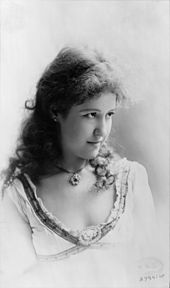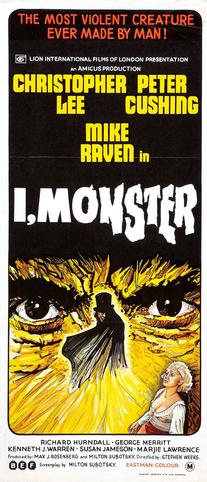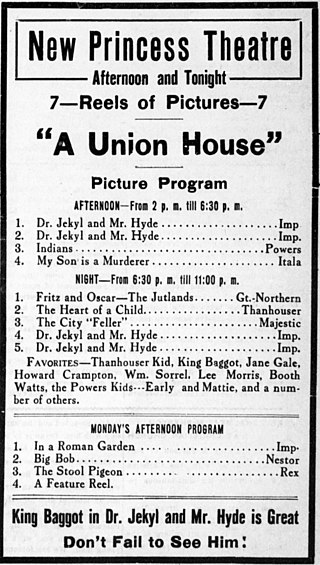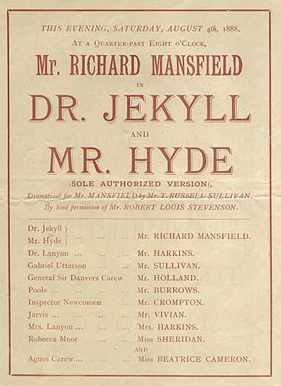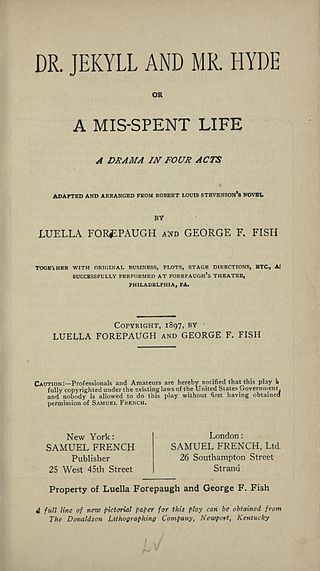Plot
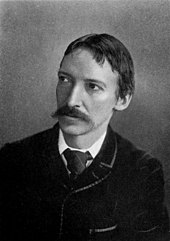
In the first act, attorney J. G. Utterson is at a London vicarage, talking to the vicar, Reverend William Howell. Howell relates a story about how he intervened when he saw a boy being beaten by a man named Edward Hyde. Utterson is dismayed to hear the name Edward Hyde. After the vicar leaves, Utterson speaks with Dr. Lanyon, then with Dr. Henry Jekyll, who lives next door to the vicarage. After Jekyll and Utterson leave, Lanyon speaks to the vicar's daughter, Sybil Howell, who admits to being in love with Jekyll. Sybil sees that Lanyon does not approve, and she asks Jekyll about it when he returns. He says she would not understand, and begins talking about the dual presence of good and evil in men. Suddenly, Jekyll feels that a "change is approaching", and runs into the shadows. Edward Hyde emerges from the shadows and menaces Sybil. She calls for her father, who enters and is immediately attacked and murdered by Hyde. Hyde runs away; Jekyll returns and asks who has attacked them. With his dying breath, the vicar says it was Hyde.
In the second act, Inspector Newcomen shows Utterson part of the walking stick that Hyde used to club Howell. Utterson recognizes it as one he gave to Jekyll. Newcomen vows to find the killer, and asks to interview Sybil, who has been staying with Utterson since the murder. Jekyll visits Utterson with a letter from Hyde, claiming he has departed. When Jekyll leaves, Utterson's assistant, Mr. Guest, points out that the handwriting on the letter is very similar to Jekyll's. When Utterson leaves, Jekyll returns and delivers a monologue confessing that he is the murderer. After a brief conversation with Sybil, Jekyll leaves, and Utterson's niece Lilian brings in a group of choirboys from Howell's church, who sing a song for Sybil. Then Utterson and Newcomen return, saying they play to lay a trap for Hyde. Sybil insists on going with them. When Hyde approaches the vicarage, he is chased by the police.
In the third act, Utterson and the police discuss their failure to catch Hyde. Officer O'Brien says he thought Hyde came into the vicarage, but he saw Jekyll approaching him instead. Utterson tells the police that Jekyll has been allowing Hyde into his laboratory. Sybil overhears this and is distraught to learn that Jekyll has helped her father's killer. Sybil resolves to investigate the case herself by visiting Hyde's landlady, Mrs. Viley. Lilian goes with her. In return for money, Viley tells them that she has never met Jekyll, but has heard Hyde threaten repeatedly to kill him. Hyde returns home and attacks Viley when he learns she has received money from Sybil. Viley screams for the police and Hyde flees. In the act's final scene, Lanyon waits in his office with drugs from Jekyll's laboratory that he retrieved on written instructions from Jekyll. Hyde arrives to retrieve the drugs. In front of Lanyon, Hyde mixes the drugs and drinks the resulting potion, which transforms him into Jekyll.
The fourth act begins four months later. Lanyon has died of shock, and Jekyll refuses to see Utterson or Sybil. Sybil is still angry that Jekyll is believed to have helped Hyde; Lilian, who always disliked Jekyll, supports Sybil's anger. One of Jekyll's servants, Poole, visits to say he fears Jekyll has been murdered. Someone is secluded in Jekyll's study, claiming to be him and communicating mostly through written notes, but Poole thinks it is someone else. Utterson, Sybil, and Lilian agree to accompany Poole to confront the person in Jekyll's study. Utterson and Poole find Jekyll's servants huddled together in fear of the person in the study. In the study, Jekyll gives a monologue explaining that he can no longer find the ingredients for his potion, and therefore will soon revert to Hyde without the ability to transform back. Sybil comes to the study and sees that Jekyll appears ill. He tells her they will marry when he is better, but when she leaves he monologues that he will die soon, then he transforms into Hyde. When Utterson and Poole come to the study door, Hyde commits suicide by drinking poison.

